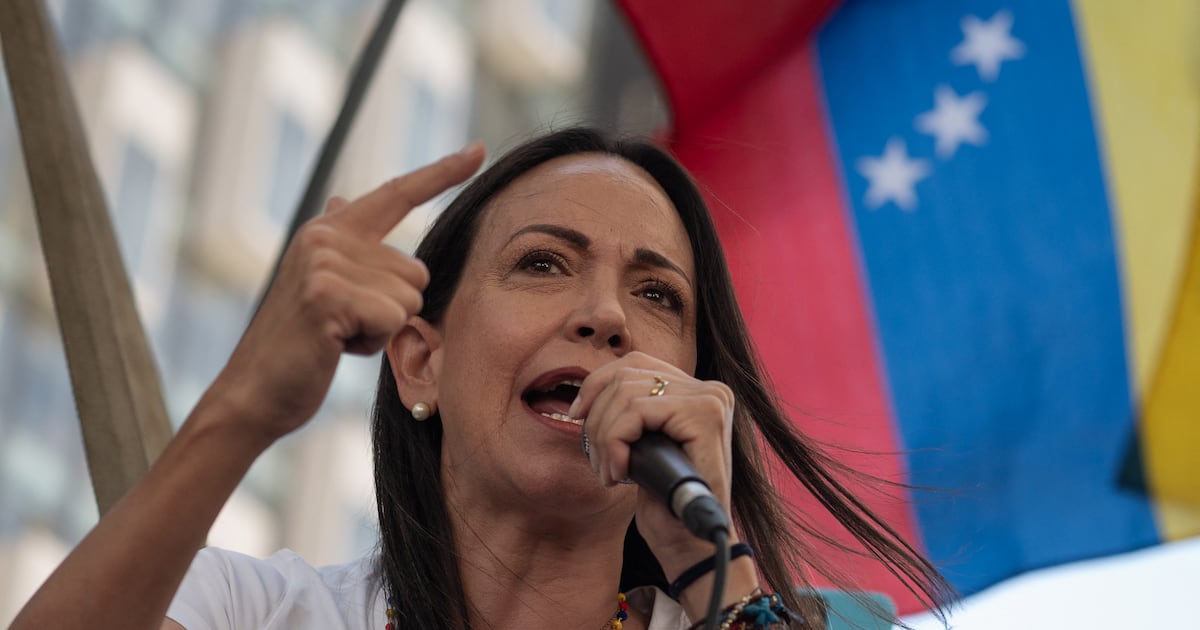María Corina Machado, a Venezuelan politician and democracy campaigner, has been named as the winner of the 2025 Nobel Peace Prize at a ceremony in Norway.
The winner was announced in a year overshadowed by a months-long campaign by US president Donald Trump to win what is arguably the world’s most prestigious award.
Norwegian Nobel committee chairman Jørgen Watne Frydnes commended Ms Machado as a “brave and committed champion of peace” who “keeps the flame of democracy burning during a growing darkness”.
Mr Trump has been outspoken about his desire for a prize won by four of his predecessors – Barack Obama in 2009, Jimmy Carter in 2002, Woodrow Wilson in 1919 and Theodore Roosevelt in 1906.
All but Mr Carter won the award while in office, with Mr Obama named laureate less than eight months after taking office – the same position Mr Trump is in now.
But when the chairman of the Norwegian Nobel Committee read out the name of Ms Machado on Friday morning, there was little surprise that Mr Trump’s name was absent.
[ María Corina Machado: the ‘iron lady’ of Venezuela Opens in new window ]
Insiders said the award followed a year-long, deliberative process, during which candidates’ strengths and weaknesses were debated by the five-strong committee.
Nominations for the prize had to reach the committee by January 31st. Committee members were also able to make nominations but they had to be made by the committee’s first meeting in February.
After that, the committee met roughly once a month. It is understood that decisions tend to be taken in August or in September, but it can also be later, as was the case this year.
The Nobel committee’s citation said Ms Machado, leader of the democracy movement in Venezuela, was “one of the most extraordinary examples of civilian courage in Latin America in recent times”.
“Ms Machado has been a key, unifying figure in a political opposition that was once deeply divided – an opposition that found common ground in the demand for free elections and representative government,” it said.
“This is precisely what lies at the heart of democracy: our shared willingness to defend the principles of popular rule, even though we disagree. At a time when democracy is under threat, it is more important than ever to defend this common ground.”
A conservative former member of the national assembly, Ms Machado is credited with corralling Venezuela’s fractious opposition behind her and captivating a broad swath of the electorate with a promise of sweeping government change.
Even former critics say her movement is the country’s most important since the one built by Hugo Chávez, founder of Venezuela’s 25-year-old socialist project.
Under its current president, Nicolás Maduro’s, Venezuela has witnessed an extraordinary economic contraction – the largest outside of war in at least 50 years, economists say. While the economy has improved slightly in recent years, millions of people still cannot afford enough food or critical medications.
While Mr Trump may be disappointed with the news, the Nobel committee has said it is used to working under pressure from people, or their supporters, who say they deserve the prize.
“All politicians want to win the Nobel Peace Prize,” Mr Frydnes, the Nobel committee leader, told Reuters.
“We hope the ideals underpinned by the Nobel Peace Prize are something that all political leaders should strive for … We notice the attention, both in the United States and around the world, but outside from that, we work just the same way as we always do.”
Mr Trump announced the conclusion of a ceasefire and hostage deal this week, under the first phase of his initiative to end the war in Gaza.
But according to Norwegian daily VG the committee took its decision on Monday – before the announcement of the deal – and even if its five members had known about it before making their choice for this year’s award, it is unlikely they would have rushed into a decision they usually spend months debating.
Experienced Nobel-watchers argued that a win for Mr Trump was extremely unlikely, citing what they saw as his efforts to dismantle the post-second world War international world order the Nobel committee cherishes.
The foundation that the five-strong Norwegian Nobel Committee follows as its basis for decisions is the 1895 will of Swedish industrialist Alfred Nobel, which established the peace prize alongside those for literature, chemistry, physics and medicine.
Nina Graeger, head of the Peace Research Institute Oslo, said Mr Trump withdrawing the US from the World Health Organisation and the 2015 Paris climate accords, and his trade war with allies, went against the spirit of Nobel’s will.
“If you look at Alfred Nobel’s will, it emphasises three areas: one is the achievements regarding peace: brokering a peace deal,” she said. “The other is to work and promote disarmament and the third is to promote international co-operation.”
Asle Sveen, a historian of the award, cited Mr Trump’s attempted rapprochement with Russian president Vladimir Putin, among other reasons.
“His admiration of dictators counts also against him,” Mr Sveen said. “This goes against Alfred Nobel’s will.”
The peace prize is the only one of the annual Nobel prizes to be awarded in Oslo, Norway.
Four of the other prizes have already been awarded in the Swedish capital, Stockholm, this week – in medicine on Monday, physics on Tuesday, chemistry on Wednesday and literature on Thursday.
The winner of the prize in economics will be announced on Monday. – Reuters
